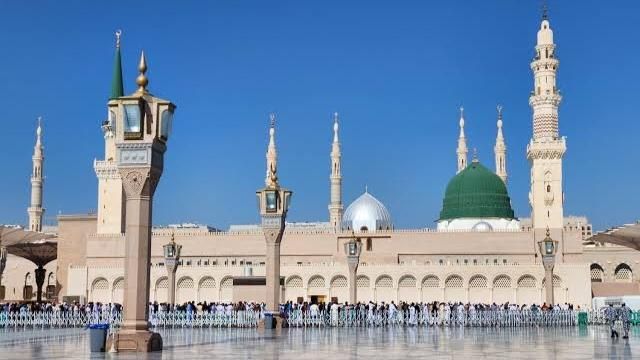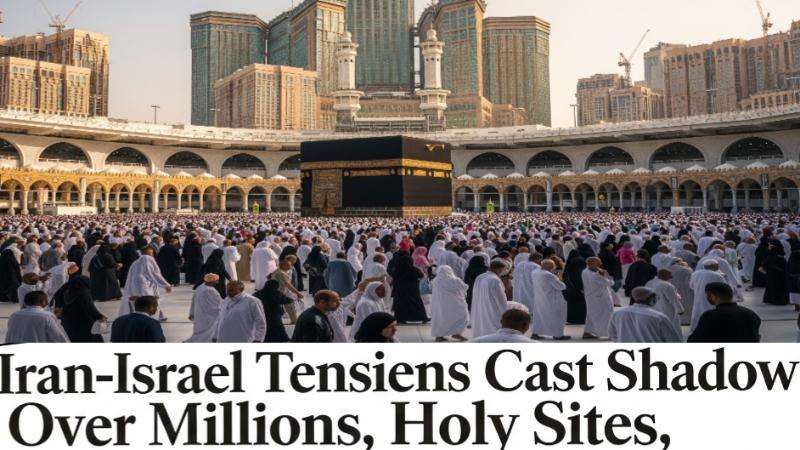 Indigenous Mura people gather in a deforested area of a non-demarcated indigenous land in the Amazon rainforest near Humaita, Amazonas State in Brazil in 2019. (Ueslei Marcelino/Reuters)[/caption]
Eight South American nations have gathered in the northern Brazilian city of Belem near the entrance to the Amazon, to chart a common course to stop further destruction of the world's largest and most diverse tropical rainforest, as part of a larger effort in the region to combat the growing climate crisis.
Brazil's President Luiz Inácio Lula da Silva, the host of the summit, urged members of the Amazon Cooperation Treaty Organization, or ACTO, to unite in order to give the regional bloc a greater voice in global climate talks, including the UN Conference of the Parties (COP) 28 in Dubai later this year.
“The forest unites us. It is time to look at the heart of our continent and consolidate, once and for all, our Amazon identity,” Lula da Silva said, as he welcomed other world leaders to the two-day event.
"The challenges of our era, and the opportunities arising from them, demand we act in unison. It has never been so urgent," he said, hailing the gathering as a "landmark meeting" that marks a "turning point in the history of protecting the Amazon and the green transition."
At the conclusion of the first day of the summit on Tuesday, he and seven other Latin American leaders made an announcement, now referred to as the Belem Declaration, that they are forming the Amazon Alliance to Combat Deforestation "with the objective of ...preventing the Amazon from reaching a point of no return".
Here's what we know so far about the Belem Declaration.
Belem Declaration signatories
Signatories of the Belem Declaration include all eight states that border the Amazon rainforest: Brazil, Peru, Colombia, Venezuela, Bolivia, Guyana, Suriname and Ecuador.
French Guiana, a territory of France, is not included in the joint declaration.
All the countries at the summit have ratified the Paris climate accord, which requires signatories to set targets for reducing greenhouse gas emissions.
Previously, cross-border cooperation has historically been scant, undermined by low trust, ideological differences and the lack of government presence.
As part of the declaration, the Amazon nations have committed to increase financial support as well as manpower to go after criminals responsible for the destruction of the rainforest.
[caption id="attachment_1465" align="alignright" width="483"]
Indigenous Mura people gather in a deforested area of a non-demarcated indigenous land in the Amazon rainforest near Humaita, Amazonas State in Brazil in 2019. (Ueslei Marcelino/Reuters)[/caption]
Eight South American nations have gathered in the northern Brazilian city of Belem near the entrance to the Amazon, to chart a common course to stop further destruction of the world's largest and most diverse tropical rainforest, as part of a larger effort in the region to combat the growing climate crisis.
Brazil's President Luiz Inácio Lula da Silva, the host of the summit, urged members of the Amazon Cooperation Treaty Organization, or ACTO, to unite in order to give the regional bloc a greater voice in global climate talks, including the UN Conference of the Parties (COP) 28 in Dubai later this year.
“The forest unites us. It is time to look at the heart of our continent and consolidate, once and for all, our Amazon identity,” Lula da Silva said, as he welcomed other world leaders to the two-day event.
"The challenges of our era, and the opportunities arising from them, demand we act in unison. It has never been so urgent," he said, hailing the gathering as a "landmark meeting" that marks a "turning point in the history of protecting the Amazon and the green transition."
At the conclusion of the first day of the summit on Tuesday, he and seven other Latin American leaders made an announcement, now referred to as the Belem Declaration, that they are forming the Amazon Alliance to Combat Deforestation "with the objective of ...preventing the Amazon from reaching a point of no return".
Here's what we know so far about the Belem Declaration.
Belem Declaration signatories
Signatories of the Belem Declaration include all eight states that border the Amazon rainforest: Brazil, Peru, Colombia, Venezuela, Bolivia, Guyana, Suriname and Ecuador.
French Guiana, a territory of France, is not included in the joint declaration.
All the countries at the summit have ratified the Paris climate accord, which requires signatories to set targets for reducing greenhouse gas emissions.
Previously, cross-border cooperation has historically been scant, undermined by low trust, ideological differences and the lack of government presence.
As part of the declaration, the Amazon nations have committed to increase financial support as well as manpower to go after criminals responsible for the destruction of the rainforest.
[caption id="attachment_1465" align="alignright" width="483"] Indigenous people take part in a march as the Amazon Summit kicks off in Belem, Para state, Brazil August 8, 2023. REUTERS/Ueslei Marcelino[/caption]
'Home to the Amazon'
The Belem Declaration covers the eight South American nations that are home to the Amazon rainforest, which stretches across an area twice the size of India, or 28 times the size of the UK.
Estimated to be about 6.7 million square kilometres, the Amazon is home to an estimated 10 percent of Earth's biodiversity, 50 million people and hundreds of billions of trees.
The vast forest is considered as a carbon buffer of the world, reducing global warming.
An estimated 60 percent of the Amazon lies in Brazil, making the role of Lula da Silva and his country of over 216 million people, pivotal in protecting the forest and pushing for actions to prevent more destruction.
Since returning to power as president, Lula da Silva's administration has already reportedly reduced deforestation in Brazil's Amazon by around 42 percent.
About 13 percent of the forest is in Peru and another 10 percent in Colombia, while the rest are shared by five other countries and one territory.
Indigenous people take part in a march as the Amazon Summit kicks off in Belem, Para state, Brazil August 8, 2023. REUTERS/Ueslei Marcelino[/caption]
'Home to the Amazon'
The Belem Declaration covers the eight South American nations that are home to the Amazon rainforest, which stretches across an area twice the size of India, or 28 times the size of the UK.
Estimated to be about 6.7 million square kilometres, the Amazon is home to an estimated 10 percent of Earth's biodiversity, 50 million people and hundreds of billions of trees.
The vast forest is considered as a carbon buffer of the world, reducing global warming.
An estimated 60 percent of the Amazon lies in Brazil, making the role of Lula da Silva and his country of over 216 million people, pivotal in protecting the forest and pushing for actions to prevent more destruction.
Since returning to power as president, Lula da Silva's administration has already reportedly reduced deforestation in Brazil's Amazon by around 42 percent.
About 13 percent of the forest is in Peru and another 10 percent in Colombia, while the rest are shared by five other countries and one territory.
'Missed target on deforestation'
Aside from a general consensus on the need for shared global responsibility, some environmentalists and political observers say that the Belem Declaration missed the opportunity to unite behind the issue of deforestation.
Forest protection commitments have been uneven previously and appeared to remain so at the summit.
For instance, the declaration did not include shared commitments to zero deforestation by 2030.
Brazil and Colombia have already made those commitments but other Amazon nations have not.
Lula has said he hopes the document will be a shared call to arms at the COP 28 climate conference in November.
Deforestation in the Amazon is driven mainly by cattle ranching, though it is fueled by a murky mix of corruption, land-grabbing and organised crime whose tentacles extend to the illegal trafficking of drugs, arms, timber and gold.
In Brazil, the world's top exporter of beef and soy, the destruction has already wiped out around one-fifth of the rainforest.
Some scientists have warned that when 20 to 25 percent of the forest is destroyed, rainfall will dramatically decline, transforming more than half of the Amazon rainforest to tropical savannah - essentially treeless and just full of grass - with immense biodiversity loss.
As part of the agreement, Colombian Environment Minister Susana Muhamad called for the final declaration to include a goal of preserving 80 percent of the Amazon by 2025, in line with the demands of many indigenous groups based in the forest.
Oil drilling, a sticking point
Another key sticking point dividing the Amazon nations is oil drilling.
Notably, leftist Colombian President Gustavo Petro called for an end to oil exploration in the Amazon — an allusion to the ambivalent approach of Brazil and other oil-producing nations in the region like Venezuela — and said that governments must forge a path toward “decarbonised prosperity.”
"A jungle that extracts oil — is it possible to maintain a political line at that level? Bet on death and destroying life?" Petro said.
Lula, who has presented himself as an environmental leader on the international stage, has refrained from taking a definitive stance on oil, citing the decision as a technical matter.
Meanwhile, Brazil’s state-run Petrobras company has been seeking to explore for oil near the mouth of the Amazon River.
In Ecuador, the country is due to hold a referendum this month on whether to stop drilling for crude on a strategic oil block located within the Yasuni Indigenous reservation, the source of 12 percent of the country's oil output.
Other highlights include:
Condemnation of the proliferation of protectionist trade barriers, which signatories said negatively affects poor farmers in developing nations and hampers the promotion of Amazon products and sustainable development.
It also called on industrialised nations to comply with their obligations to provide massive financial support to developing nations.
The Amazon nations also called for the strengthening of law enforcement cooperation among member states.
The signatories also committed to exchanging best practices and intelligence about specific illicit activities, including deforestation, human rights violations, trafficking of fauna and flora and the sale and smuggling of mercury, a highly toxic metal widely used for illegal gold mining that pollutes waterways.
Brazil is also calling for the summit to create an international police task force for the region and a scientific research group modelled on the Intergovernmental Panel on Climate Change (IPCC), the advisory board to the UN climate talks.

_2.jpg)
_2.jpg)





.svg)

